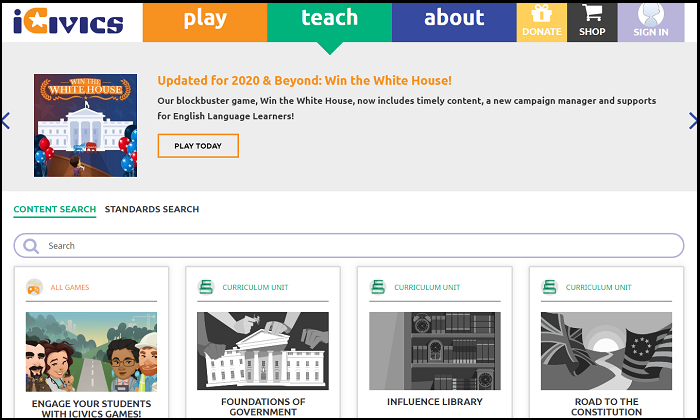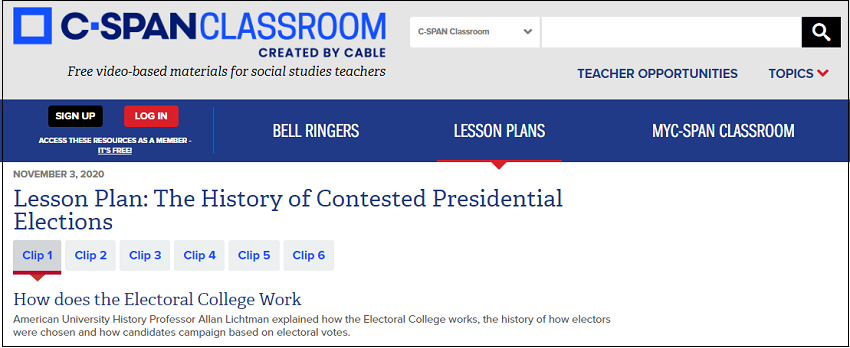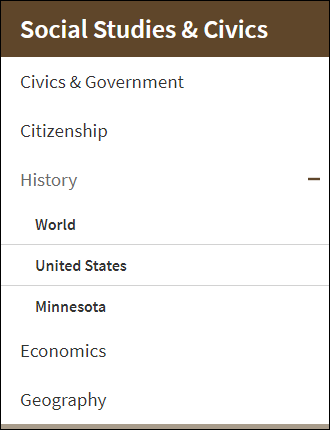- MN ABE Connect
- Archive
- Election Lessons Shouldn’t (and Don’t) End on November 3rd! – Part 2
 November 16, 2020
November 16, 2020
Election Lessons Shouldn’t (and Don’t) End on November 3rd! – Part 2
John Trerotola, ABE TeacherFollowing from Part 1 in this 2-article series, Part 2 explores some additional instructional themes, topics, and resources that may get overlooked after all the pre-election and election day hype is over. While we all may be personally suffering from election fatigue, topical lessons about the electoral process still have a place in all levels of the ABE classroom after November 3.
Transition of Power, Inauguration Day, and the First 100 Days
 Especially if a sitting president is defeated, there are so many teachable moments on that period before and after inauguration, and about Inauguration Day itself. If you want an easy-to-read graphic about the transition of power, or a lesson about a president’s first 100 days in office, iCivics (https://www.icivics.org) is again your go-to resource. (Note: You’ll need a FREE iCivics account to access these resources.)
Especially if a sitting president is defeated, there are so many teachable moments on that period before and after inauguration, and about Inauguration Day itself. If you want an easy-to-read graphic about the transition of power, or a lesson about a president’s first 100 days in office, iCivics (https://www.icivics.org) is again your go-to resource. (Note: You’ll need a FREE iCivics account to access these resources.)
In addition, and for that social studies and literacy connection, Newsela (https://newsela.com/) has leveled articles about the aftermath of elections and one that reminds us that there have been times when presidential candidates have not accepted defeat. (Note: Newsela is now a paid subscription-based service, but you can access these election resources for free by signing in with a Google account, for example.)
Finally, to make those past and present connections, many of George Washington’s Mt. Vernon FREE educational resources (https://www.mountvernon.org/education/) provide an early context to Inauguration Day. Check out this lower level lesson and this upper level lesson on that site!
The Presidency and American Government
As teachers, we may have devoted a substantial amount of instructional time discussing the electoral process while overlooking the office of the presidency and the overall structure of American government. Among the wide range of resources on these broad topics, ESL Library (https://esllibrary.com/) has added lessons on various government topics that are perfect for the ELL classroom, but are beneficial for the basic skills one as well. (Note: You’ll need a paid subscription to access these resources.)
In addition, consider using C-SPAN Classroom’s (https://www.c-span.org/classroom/) extensive FREE video-based materials which can reinforce your social studies instruction through the use of visuals that actually show the government at work.

Social Studies & Civics library
 More details about these highlighted resources, and about other leveled social studies materials, can be found on the ATLAS Social Studies & Civics online resource library. For election-related resources, look especially under the Civics & Government category in the right-hand menu.
More details about these highlighted resources, and about other leveled social studies materials, can be found on the ATLAS Social Studies & Civics online resource library. For election-related resources, look especially under the Civics & Government category in the right-hand menu.
(Note: you can find the full collection of online ATLAS libraries at https://atlasabe.org/resources/).
In the end, topics related to government, social studies, and history can be taught at any time throughout the year and not only in conjunction with some specific, real-time event. Indeed, based on our current political climate and increased awareness, teachers are given the wonderful opportunity to engage students in meaningful instruction about those impactful events that are occurring on a daily basis.
Don’t forget to check out Part 1 of this article, where we explore themes such as teaching in a presidential election year, the Electoral College, and voter turnout!

Newsletter Signup
Get MN ABE Connect—the official source for ABE events, activities, and resources!
Sign UpArticle Categories
- ABE Foundations/Staff Onboarding
- ACES/Transitions
- Adult Career Pathways
- Assessment
- CCR Standards
- Citizenship
- COVID-19
- Cultural Competency
- Digital Literacy/Northstar
- Disabilities
- Distance Learning/Education
- ELA
- Equity/Inclusion
- ESL
- HSE/Adult Diploma
- Listening
- Math/Numeracy
- Mental Health
- Minnesota ABE
- One-Room Schoolhouse/Multilevel
- Professional Development
- Program Management
- Reading
- Remote Instruction
- Science
- Social Studies
- Speaking/Conversation
- Support Services
- Teaching Strategies
- Technology
- Uncategorized
- Volunteers/Tutors
- Writing